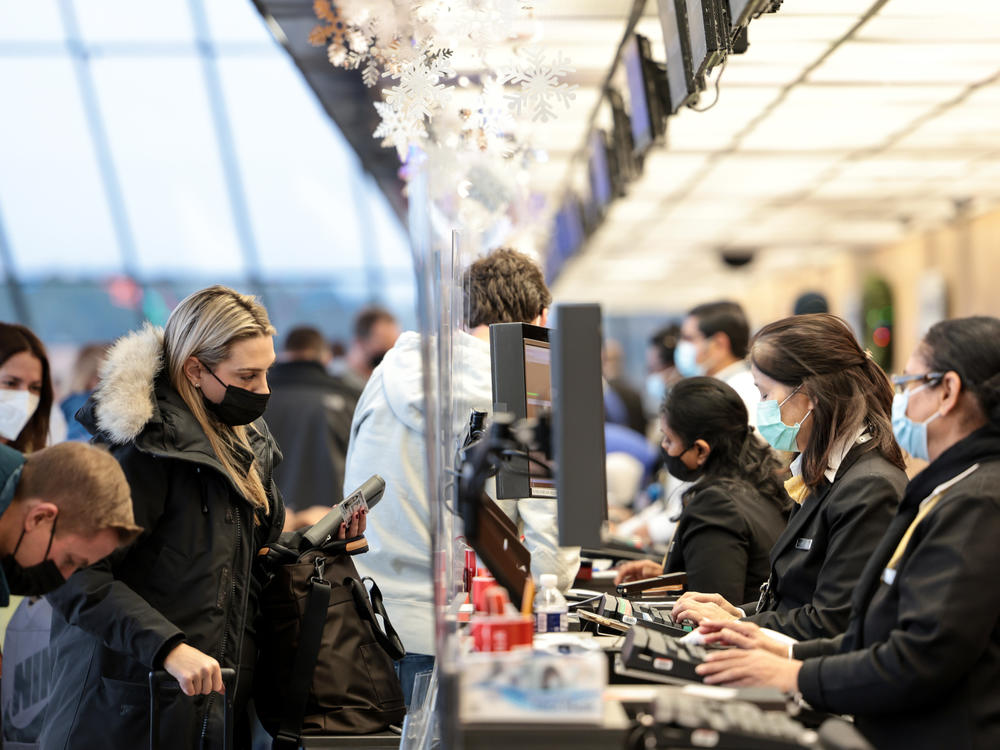Section Branding
Header Content
United says 3,000 employees have COVID, but its vaccine mandate has saved lives
Primary Content
Amid a flurry of flight cancellations, United Airlines CEO Scott Kirby offered a window into the staffing challenges employers are facing due to the omicron surge.
"We have about 3,000 employees who are currently positive for COVID. Just as an example, in one day alone at Newark, nearly one-third of our workforce called out sick," he wrote in a memo to employees on Tuesday.
U.S. airlines have had to cancel tens of thousands of flights in recent weeks due to a combination of winter weather and staffing shortages, leaving travelers stranded and frustrated over the holidays. Now, Kirby said United is working to cancel flights early when necessary, before customers arrive at the airport, and is reducing flights to ensure there is enough staff on hand to handle customer needs.
In the memo, Kirby also took the opportunity to emphasize that the airline's vaccine mandate is working — despite the large number of employees testing positive.
He noted that among United's 3,000 employees who currently have COVID-19, zero of its vaccinated employees are currently hospitalized.
Moreover, he revealed that prior to the airline's vaccine mandate, which took effect in September, more than one United employee was dying from COVID-19 every week, on average.
"But we've now gone eight straight weeks with zero COVID-related deaths among our vaccinated employees," he wrote, noting that based on available data, that means approximately eight to 10 lives were saved by the vaccine requirement.
"While I know that some people still disagree with our policy, United is proving that requiring the vaccine is the right thing to do because it saves lives," Kirby wrote.
United was among the first companies in the U.S. to require COVID-19 vaccinations for all of its employees, rolling out its policy in early August. By late September, more than 97% of its 67,000 U.S.-based employees had gotten the shots and a couple thousand were granted religious or medical exemptions.
Copyright 2022 NPR. To see more, visit https://www.npr.org.

